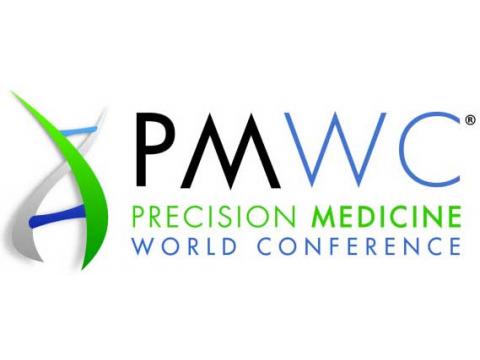In preparation for the Precision Medicine World Conference on January 20-23rd, 2019, PMWC took a moment to ask us some questions about the new and emerging technologies in the precision medicine field that have the potential to be huge life changers. Read PMWC’s questions and our answers below.
Q: There are various new, emerging technologies that bring us closer towards a cure for life-threatening disorders such as cancer, HIV, or Huntington’s disease. Prominent examples include the popular gene editing tool CRISPR or new and improved cell and gene therapies. By when can we expect these new technologies being part of routine clinical care?
A: We should all be working towards integrating these technologies into routine patient care as quickly as possible, because genomic medicine has the capacity to make profound impacts now. These technologies, and many others, can only be truly impactful when they are accessible and useful for any and every patient, as opposed to being siloed in research spaces. At NemaMetrix, where we create model organisms that allow clinicians to study high-impact genetic diseases experienced by real patients, our collaborations with clinicians are an important part of learning how to fully and quickly enter common diagnostic workflows.
Q: What emerging technologies will have a significant impact on patient care in the near and far future?
A: We have come a long way in performing sequence analysis on a patient with a suspected genetic disease. Now this has become a standard of care. However, when a genetic variation is identified as pathogenic in a disease state, clinicians and patients are faced with making difficult care decisions. Unfortunately, in a patient, the pathogenicity of a gene variant often remains uncertain. Any technology that provides good functional data that can give clinicians better insight into disease mechanisms and help them design more individualized treatment options would have a significant impact.
At NemaMetrix, we begin where whole genome sequencing (WGS) ends. We can engineer a patient’s proxy, or avatar, with their exact genetic condition, and then run a series functional assays to profile disease-linked phenotypes within the proxy. The clinician gets a solid body of data from which the mechanism of disease can be elucidated.
Q: In order to maximize the potential of the aforementioned technologies in the clinic, what strategies need to be adapted?
A: The number of non-synonymous variations in the genome is estimated around 80,000,000. Yet the number of variations known to be pathogenic or likely pathogenic is only around 111,000. So there is a huge portion of genetic differences that are in need of functional determination. The only way for any of us (research institutes, companies, health care providers and insurance companies) to make a true impact on patient care is to come to the table ready to share resources, expertise and creativity.
Q: What are some of the major challenges that need to be overcome before we can see widespread applications across the clinic?
A: In order to better understand more variants in disease genes and provide fast and more precise clinical data, there must be better accessibility to animal models and data analysis technologies. Currently, neither is easily accessible.
Q: What solution is your organization providing to address what need in precision medicine?
A: As an example, one area in massive need of fast analysis is pediatric epilepsy. Sudden Unexplained Death in Epilepsy (SUDEP) could be significantly reduced if proper interventions were found early enough. By inserting a child’s disease-causing variant into a simple model organism, we can quickly profile the patient’s precise genetically-linked disease. Using high-throughput formats, we can screen thousands of their avatars to determine which therapeutics are indicated to be a likely successful and personalized course of treatment. Drug optimizing studies are currently being conducted to find best therapeutic fit and reduce the therapeutic odyssey of patients, many of whom are struggling to find benefit as they suffer the side effects of ineffective treatments.
Q: Is there anything you would like to share with the PMWC audience?
A: We’re always interested in collaborating with researchers, clinicians, and industry leaders who are also interested in pursuing discovery within transgenics, model organisms, and genetically linked diseases and personalized genetic medicine. Together, we can create technologies that enable better understanding of genetic variants and eventually quickly test a range of therapeutic options.

